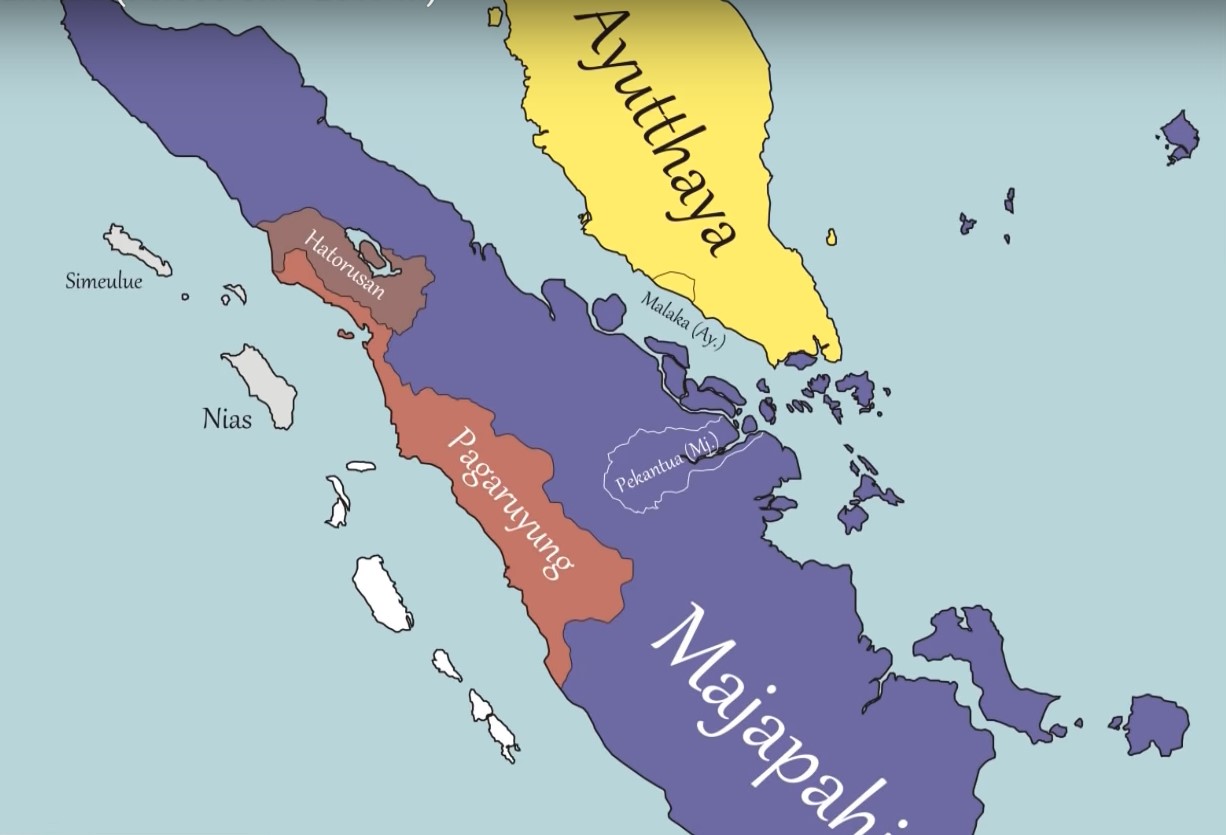Yongle's warning to Ayutthaya (1407)

Sunday, 20 November 1407. The envoy dispatched by Chao Nakhon Intharacha 昭・祿羣・膺哆囉諦剌, who came to offer tribute of tamed elephants 馴象, parrots 鸚鵡, peacocks 孔雀 and other stuffs, was received by the Ming court. Zhu Di 朱棣 seized the opportunity and asked the tribute team to relay some messages back to their king. $$ \begin{gather} \color{brown}{\rm 🜲}\\ \color{brown}{\rm Raj}\\ {\rm Raj \quad Raj}\\ {\rm Raj \quad Raj \quad Raj}\\ {\rm Raj \quad Raj \quad Raj \quad Raj}\\ {\rm Raj \;\; \ldots \ldots \ldots \ldots \ldots \ldots \;\; Raj}\\ {\rm Raj \quad \ldots \ldots \ldots \ldots \ldots \ldots \ldots \ldots \quad Raj}\\ \end{gather} $$ The Malay word diraja (دراج) is an Indian loanword. Its origin form is ādhi + rāja (आधि + राज् = above + kings). For instance, in Hikayat Berma Shahdan (Raffles MS12, circa 1830) by Shaikh Abu Bakar ibn Omar, we have ‘angkatan raja diraja' (اڠکتن راج دراج...